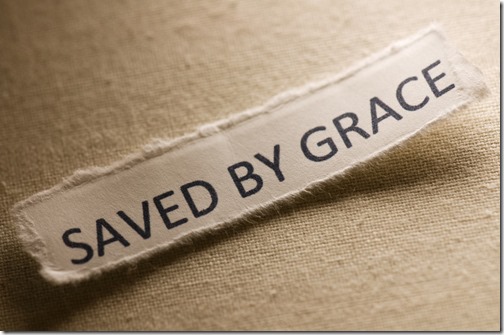
The Grace of Remembering No More
 When there’s a fuss over what to name a baby, something is going on.
When there’s a fuss over what to name a baby, something is going on.
In Matthew 1, while Zechariah was serving his priestly rotation at the Temple, the angel Gabriel appears and announces that, in spite of their advanced years, they will have a baby boy, and Gabriel is very clear about his name.
“You will name him John.”
Zechariah questions how this can happen since many years of childlessness have made it clear that his wife Elizabeth is incapable of getting pregnant. That may seem natural to us, but Gabriel takes offense and strikes Zechariah with muteness until which time the baby is named.
That occurs, not at birth as is our custom, but at circumcision eight days after birth. At that time Zechariah and Elizabeth bring the baby to the Temple.
This is not a private ceremony but something that the whole community takes part in. Family and friends are there, and when it comes time to name the baby they all assume that he will be named after his father.
But Elizabeth speaks up and says, “No, his name is John.”
Nobody understands this. No one in the family is named John, and it is customary and expected to keep it in the family. This old woman obviously doesn’t know what she’s doing, so they ask Zechariah, who grabs a tablet and writes, “His name is John.”
This amazes everyone, I guess because the old woman was right after all, but then they are completely blown away when Zechariah starts talking and prophesying.
I want to focus on the name-debate. If Luke had written it in such a way that everyone was just questioning the appropriateness of the name John it would have read a certain way, but that’s not how he presents it.
There’s a debate. Everyone insists the baby should be named Zechariah, but Gabriel and therefore Zechariah and Elizabeth insist is must be John.
The debate, therefore, is not about naming him John and any other family name. The debate is Zechariah vs. John, which means that Gabriel is saying not just that his name is John but also that his name must not be Zechariah. What’s wrong with the name Zechariah, and why is John favored over it?
Zechariah means, “Yahweh remembers,” which might, in some cases, be a good thing, but for Israel in the 1st century, it most definitely is not.
In the first century the conditions of the Exile are still in force. Though Israel had returned to the land in the early 400’s B.C.E., they did so under the authority of Cyrus of Persia, and Israel had been pretty much under foreign rule ever since.
The reason they had gone into Exile, as the prophets made clear, is because of their idolatry and injustice. They had pushed Yahweh past the limits of his patience, and his wrath fell upon them.
And the Exile would not end until his anger abated, which, apparently it had not for over four hundred years. Ancient Israel understood that the Exile would not end, Yahweh would not return to Zion, and the Messiah would not come, until God forgot about their sin and in his mercy and grace forgave Israel for their idolatry and injustice.
What they needed was not for Yahweh to remember; they needed him to not remember. They needed Yahweh to be gracious.
Which is what the name John—Yochanan in Hebrew—means: “Yahweh is gracious.”
The name debate is not just a dispute over what to name a child; it is an announcement. Yahweh no longer remembers. Yahweh is gracious.
The time for Exile is over; the time for the Messiah and his gracious kingdom is at hand.
The time of remembering sin is over; the time of grace has arrived.
There are some in Christianity who seem to believe that it’s important to remember sin—particularly other people’s sin.
They are mistaken, and tragically so.
It is still the time of grace.
Yahweh has forgiven.
Yahweh is gracious.
That’s the message.
Happy Holidays indeed.
 I am a lifelong student of the Bible, and have been a pastor for over twenty-five years. My desire through this blog is to help people see things in the intersection of Scripture and real life that they might have missed. The careless handling of the Bible is causing a lot of problems in our churches and our culture--and is literally turning people away from the church, and, sometimes, God. I hope to treat Scripture with the respect it deserves, and, even if you don't agree with what I say, give you some insight.
Feel free to leave a comment. I promise to respond to you. All I ask is that you be respectful in your comments.
I am a lifelong student of the Bible, and have been a pastor for over twenty-five years. My desire through this blog is to help people see things in the intersection of Scripture and real life that they might have missed. The careless handling of the Bible is causing a lot of problems in our churches and our culture--and is literally turning people away from the church, and, sometimes, God. I hope to treat Scripture with the respect it deserves, and, even if you don't agree with what I say, give you some insight.
Feel free to leave a comment. I promise to respond to you. All I ask is that you be respectful in your comments. 
Connect with Me